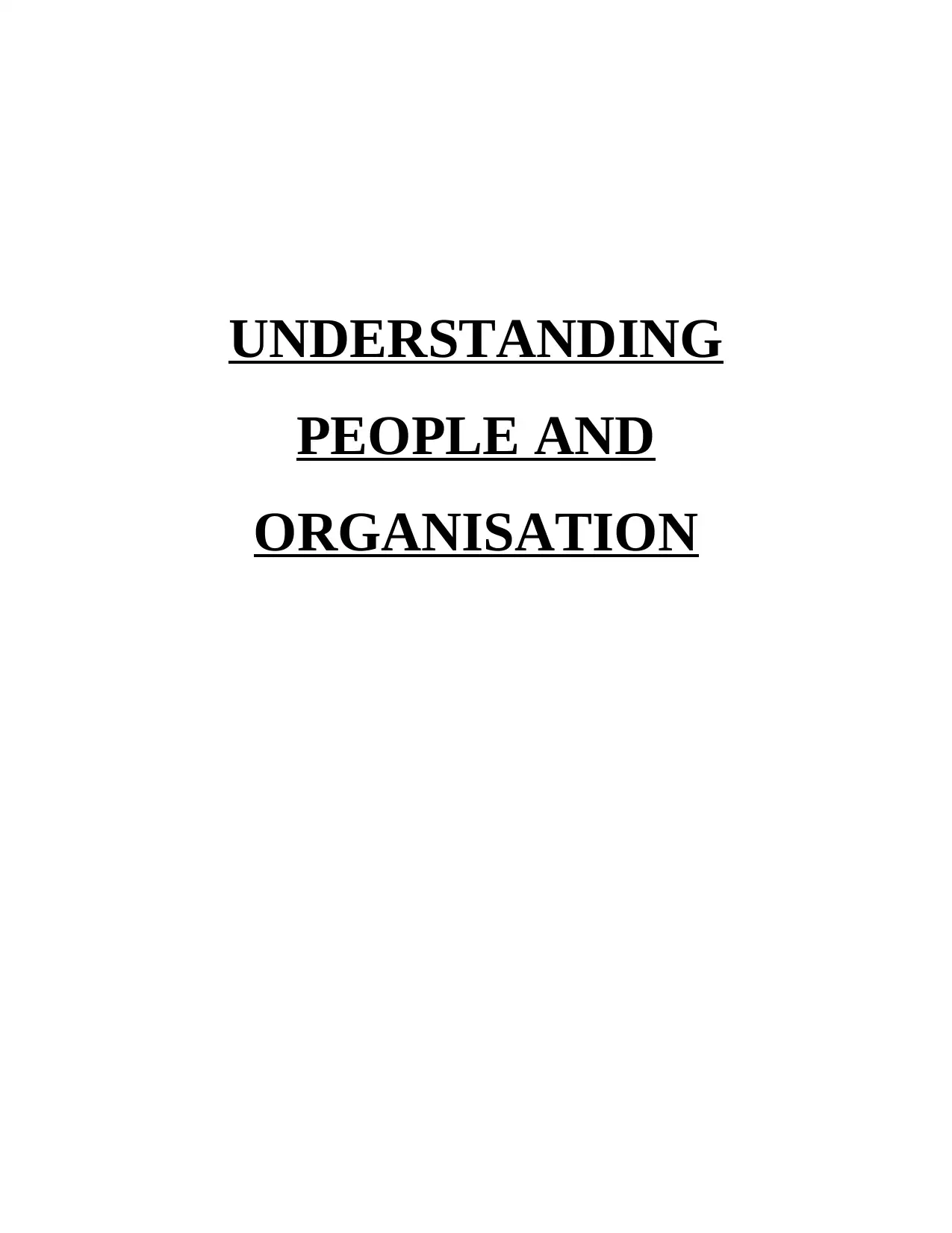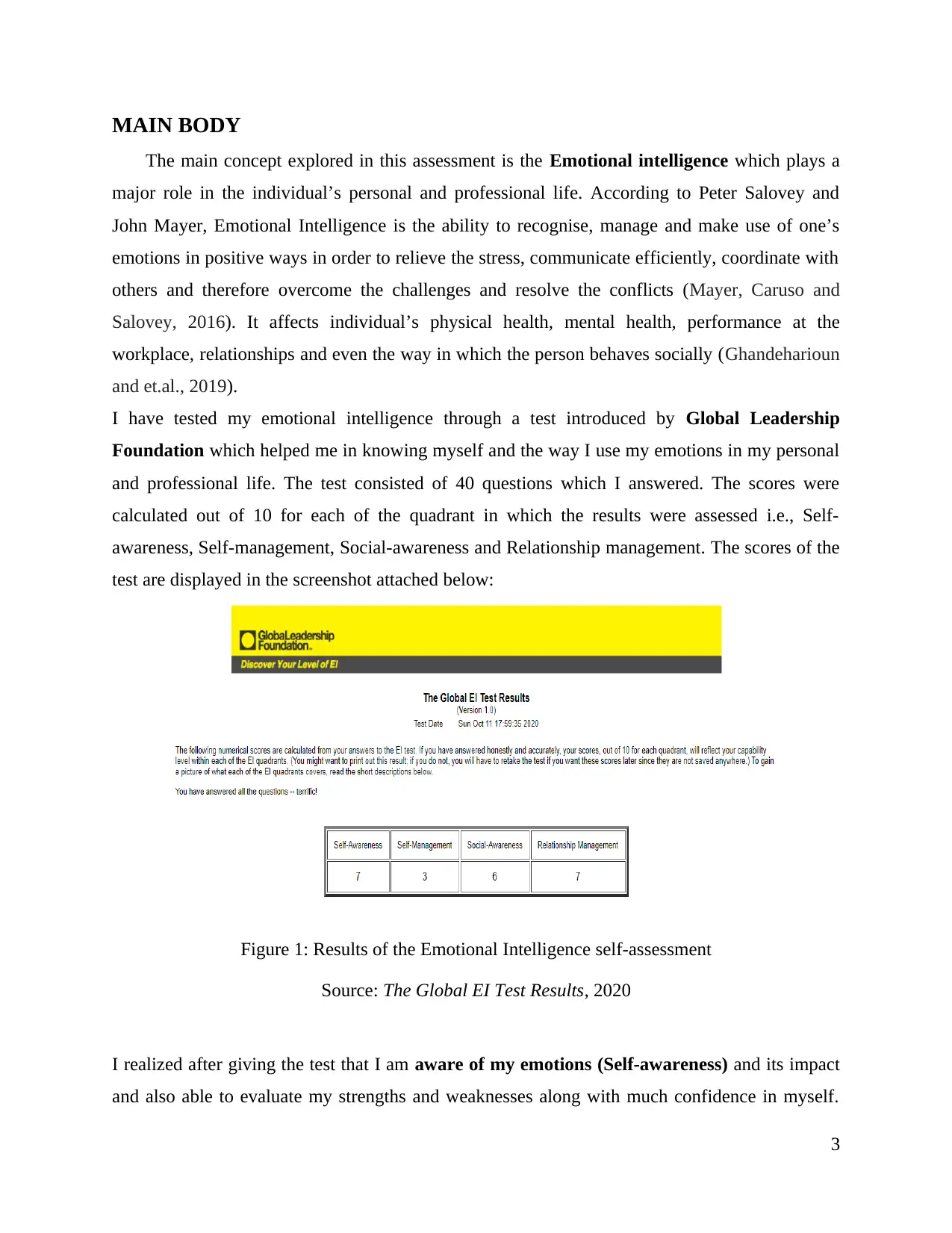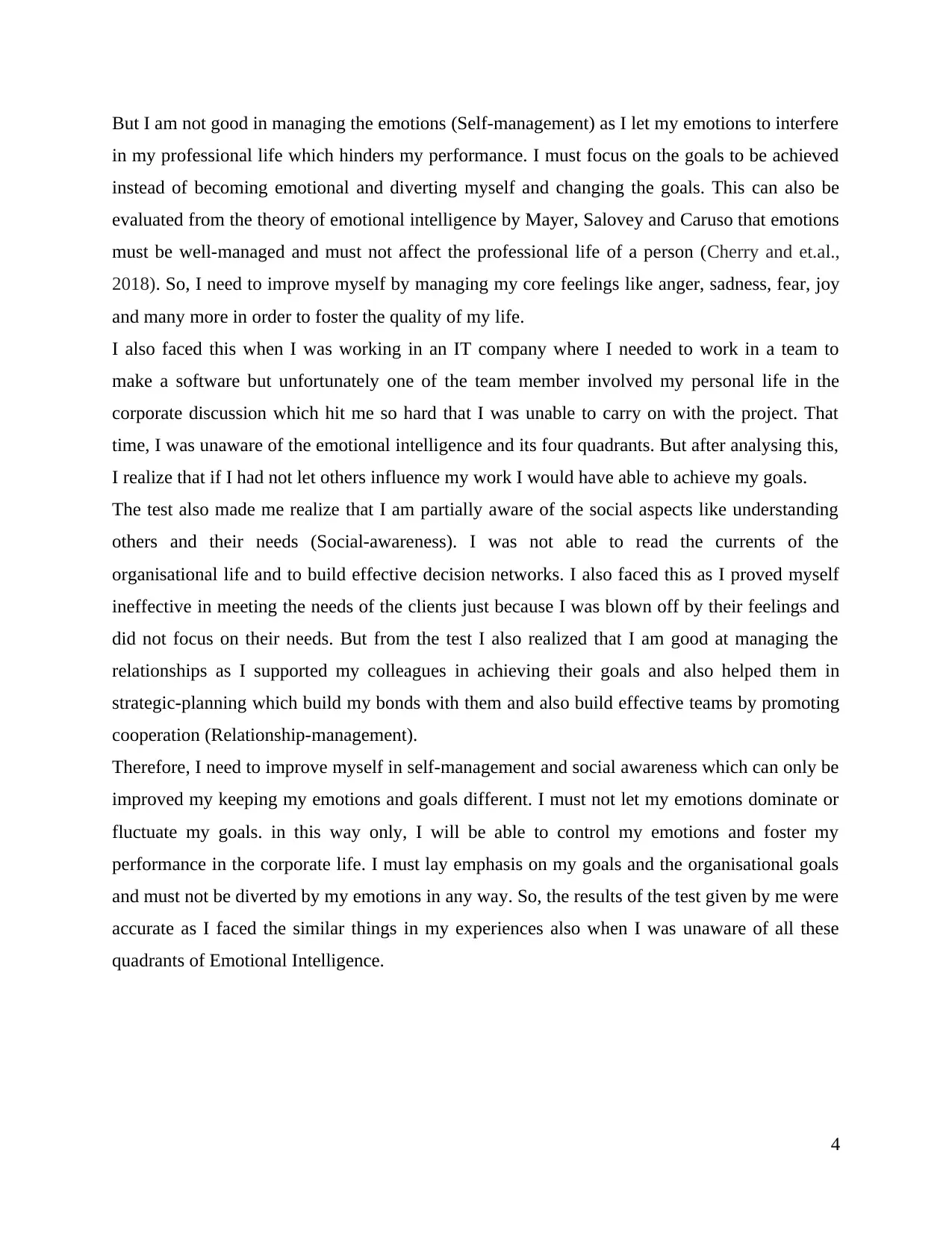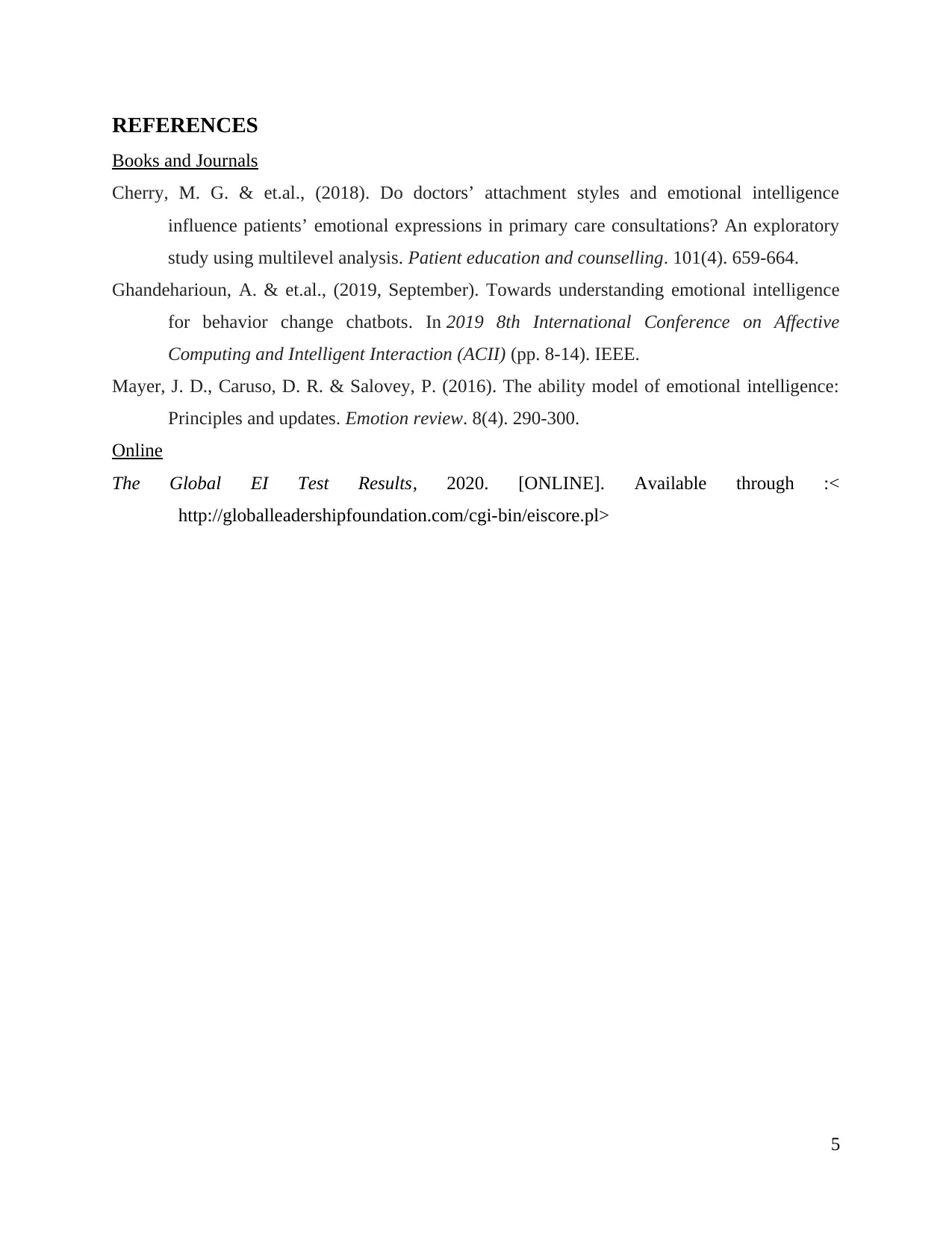Emotional Intelligence Analysis and Self-Assessment Report
VerifiedAdded on 2023/01/06
|6
|894
|86
Report
AI Summary
This report delves into the concept of emotional intelligence (EI) and its significance in both personal and professional spheres, drawing upon the work of Salovey and Mayer. The author conducted a self-assessment using the Global Leadership Foundation's EI test, evaluating scores across four quadrants: Self-awareness, Self-management, Social-awareness, and Relationship management. The analysis reveals strengths in self-awareness and relationship management, while highlighting areas for improvement in self-management and social awareness. The report connects these findings to real-world experiences, such as challenges in team collaboration and client interactions. It emphasizes the need to manage emotions effectively, separate emotions from goals, and improve social understanding for enhanced performance. The report concludes by reinforcing the accuracy of the self-assessment results and their alignment with practical experiences, underscoring the importance of EI in leadership and organizational success.
1 out of 6













![[object Object]](/_next/static/media/star-bottom.7253800d.svg)